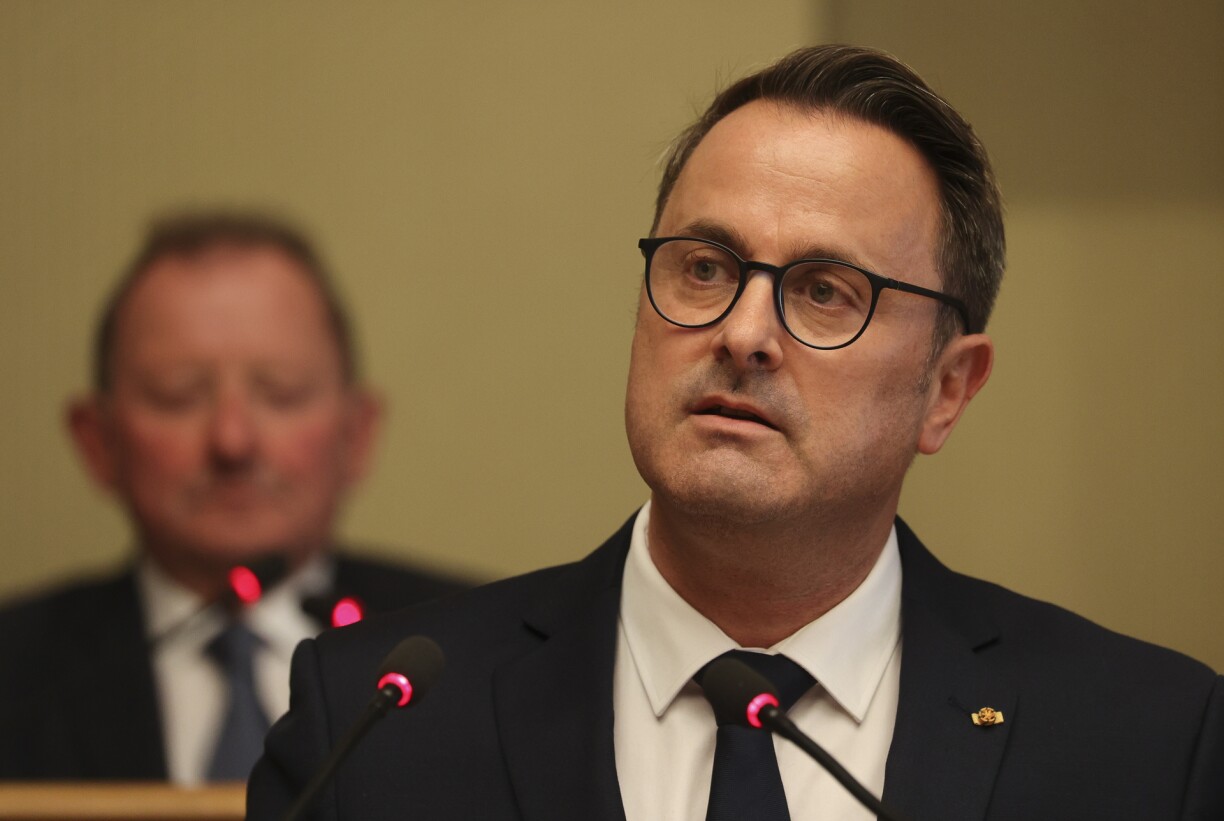
This year’s speech saw the Premier focus on the concept of responsibility, in the face of the economic crisis, the climate crisis, health and the war in Ukraine.
Bettel highlighted Luxembourg’s reaction to previous challenges and explained how future investment would reinforce the sense of responsibility towards the country’s citizens, and those from abroad, with plans to invest in defence, sustainable energy, healthcare and transport.
The Prime Minister opened his speech with a description of these “uncertain times”, with a particular focus on the ongoing conflict in Ukraine. He chose to highlight the parallels between Russia’s invasion, and Luxembourg’s years under Nazi occupation, with mention of the recent 80th anniversary commemorated last Sunday.
He also thanked the Luxembourg population for their willingness to assist in the refugee efforts, with some 2,600 out of 4,100 Ukrainians housed in private homes thanks to a widespread show of solidarity by the Duchy’s citizens.
Luxembourg wholly supports the sanctions against Russia and sits among the leaders of the EU and NATO in dispatching military equipment to Ukraine, Bettel said, with 72 million euros’ worth sent already - 16% of the country’s defence budget. As a result of the conflict, Luxembourg will invest 1% of its GDP in defence by 2028, as well as drafting plans to improve cyber security in the wake of recent data breaches, such as the one experienced by the Enovos energy supplier this summer.
Bettel repeatedly reinforced the urgency of the climate crisis, acknowledging that Luxembourg is one the world’s highest CO2 emitters, whilst consuming the most precious resources. He said the Grand Duchy must set an example for other countries, and laid out plans for the government’s climate policies.
In addition to a new renewable electricity agreement with Denmark, signed last week, the government will introduce new subsidies for energy renovation work - called the “Klimabonus”. The existing grants for replacing fossil fuel heating systems will be increased, and the VAT rate for solar panel installation will be reduced to 3% from 1 January 2023. The government will also enforce the installation of solar panels on all new construction following a transition phase.
There will also be additional financial support for low-wage households who may not otherwise be able to afford energy renovations. “We want to make it as easy as possible for people to use renewable energy,” insisted Bettel.
As a farmers’ protest took place outside the Chamber, the Prime Minister promised to engage in constructive dialogue on the country’s agricultural future and investment.
Luxembourg is already well on the way to encouraging use of electric or hybrid vehicles, Bettel announced, with 30 of the 88 planned charging terminals already in operation. The remainder are on track to be installed by the end of 2023.
The public transport network will also be subjected to redevelopment, with a focus on establishing connections in rural areas, as well as an extension of the existing tram network out to Esch-sur-Alzette. Bills for a high-speed connection are in the draft stage and will be submitted to the Chamber before the end of the legislative period.
Next year will also see the advent of new train carriages, increasing passenger capacity by 43% over the next two years.
Spending on public housing has risen from €40 million in 2017 to €220 million in 2022 - an increase of 450% in five years, said Bettel. The Pacte Logement 2.0 will seek to increase affordable housing across the country with the support of municipal councils and the state.
A national register for affordable housing will be created to increase transparency and help house those who need it most. The government will also promote housing benefits, as many do not realise they are eligible to receive support.
The Prime Minister made reference to the OECD report on Luxembourg’s handling of the Covid situation and clarified that vaccination centres will remain open, allowing those in need access to the vaccine. The bills for compulsory vaccination have been worked on and are in reserve should they be required. Around 83% of the population is currently vaccinated against Covid-19.
The government will continue to invest in the healthcare sector, improving decentralised access to services across the country. The University of Luxembourg will offer new courses in medicine and nursing over the next couple of years to encourage applicants.
Digitalisation will also play a role, with the government working on plans to simplify direct and automatic payments and eliminate the need to pay health insurance in advance.
Much of the speech was dedicated to discussing the implementation of policies announced in last year’s address, with plans for the future building on the existing ideas.
Bettel ended the speech on a more hopeful note, promising that his government would take on their responsibilities, even in the face of these challenging times, and offered words of encouragement:
“I understand these worries and fears. But there are enough reasons to face the coming weeks and months with optimism and courage. Together we will overcome this. Just as we, as a people, have already gone through many difficult times. That is Luxembourg. That is what characterises us.”
Read the full speech here.
PM Bettel held State of the Nation address